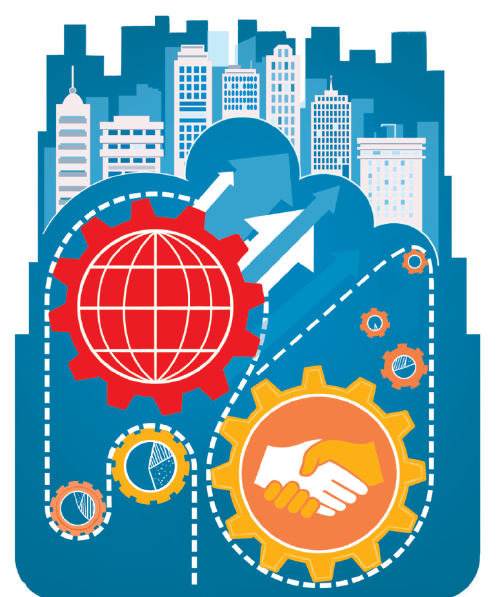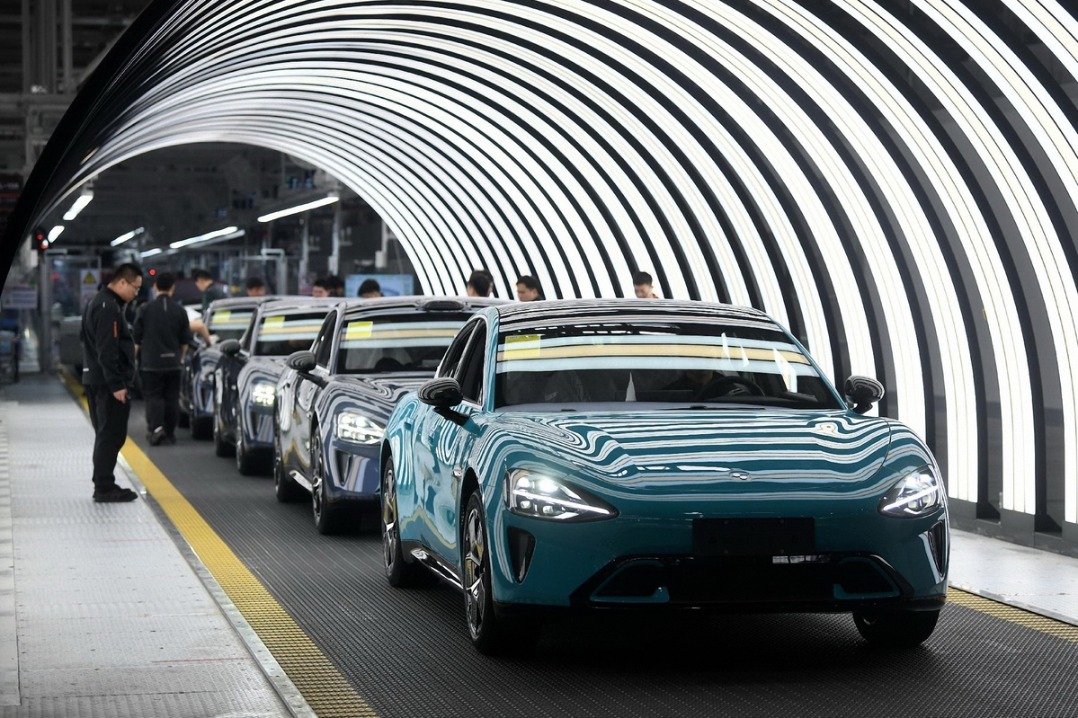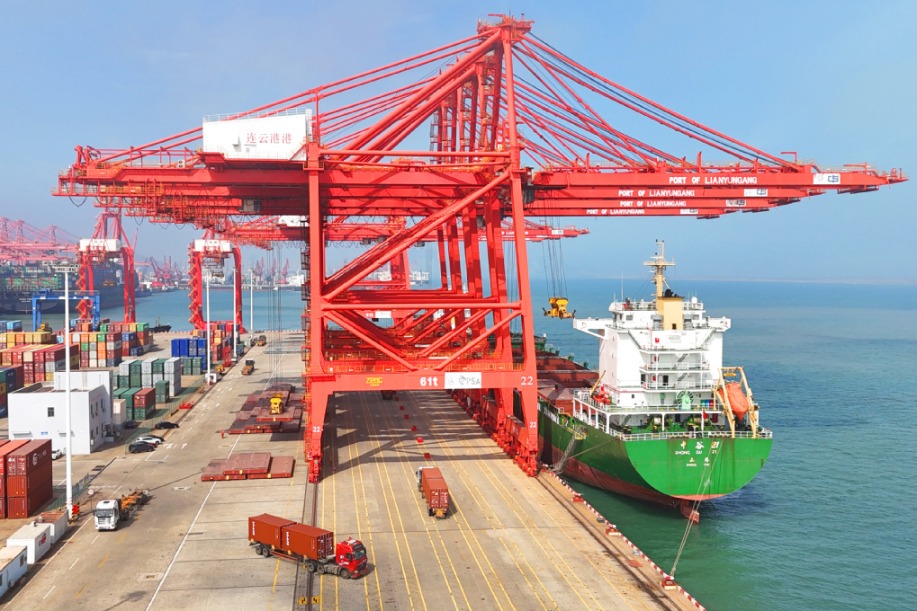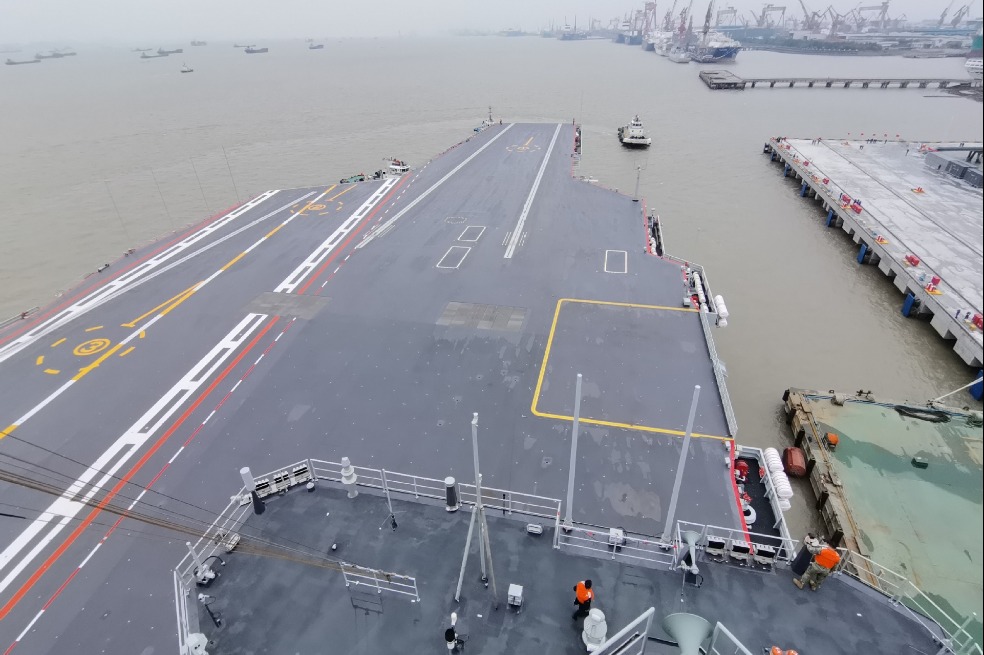Change of priorities
By ZHANG HAIBING | China Daily Global | Updated: 2020-07-20 09:03

Pandemic has made safeguarding people's health the most prominent and pressing development issue
The global spread of the novel coronavirus has not only led to a serious recession in the global economy, but also intensified the trends of populism and anti-globalization, bringing unprecedented challenges to global development governance. The international community needs to take the pandemic as an opportunity to improve the global development governance system and make adjustments in the goal-setting and governance mechanisms.
People's health, safety and survival needs have become prominent issues of global development governance. In the face of the pandemic, basic human rights such as survival and health are more visible in the goal system of global development governance. This change in understanding will have a lasting systemic impact on global development governance.
From the perspective of domestic governance, the outbreak has exposed the weak governance capacities of both developed and developing countries in the time of crisis. How to mobilize resources to effectively contain the novel coronavirus and provide basic health services for vulnerable groups, such as women, children, the elderly and adolescents, is no longer a problem exclusive to developing or fragile countries; it's a challenge for all countries in the world. Therefore, public health will remain high on the domestic development agenda for a long time, affecting national policies in politics, the economy, foreign affairs and security.
From the perspective of international cooperation, differences in understanding have kept the international community from reaching a consensus on the issue of development goals, and the gap has been widened by the Western countries as they have sought to prevent developing countries from choosing their own development paths and models.
The complex index system of the United Nations 2030 Sustainable Development Goals, which comprises 169 targets under 17 goals, proves that countries have diverse interpretations of development. But the pandemic has highlighted that the core issue of development is safeguarding people's health and safety. In other words, the right to survive and live healthily is the most fundamental development right and the most crucial human right, which proves the far-reaching significance of the conclusion that "development is the fundamental principle".
In underdeveloped areas, social distancing is a privilege that people who live in poverty do not enjoy when they are still struggling for access to clean water, food and basic sanitation and hygiene products. Therefore, the development needs for survival and health will become more significant after this pandemic and are likely to influence the setting of SDGs after 2030.
The overall environment for global development governance has deteriorated sharply.
The pandemic has led to the simultaneous outbreak of multiple crises. For the first time since World War II, all regions around the world are facing multiple systemic crises at the same time. The overall environment for global development governance has deteriorated sharply.
It is unlikely that the UN SDGs would be achieved by 2030, as the number of global population living in poverty will soar due to the impact of the world economic recession. According to the Global Economic Prospects released by the World Bank in June 2020, the global economy is facing a severe recession, and 70 to 100 million people are expected to fall into extreme poverty in 2020.
Under a downside scenario, global growth would shrink almost 8 percent in 2020, and barely begin to recover, increasing to just over 1 percent in 2021; emerging markets and developing economies would contract by nearly 5 percent in 2020. Moreover, the pandemic will not only threaten to throw large numbers of people back into extreme poverty, but also reverse the progress in health, education, gender and other development areas.
Meanwhile, conflicts are intensifying around the world, undermining the efforts to realize the SDGs. The international community has failed to make use of the global response to reduce international conflicts. On the contrary, the pandemic has restricted the peacekeeping capacity of the international community, which may give rise to regional conflicts and tensions. The UN High Commissioner for Refugee's Global Trends report shows that forced displacement has almost doubled since 2010, with a record high of 79.5 million displaced at the end of last year. If the international community fails to effectively pacify the unrest caused by the pandemic and limited peacekeeping operations, the number of global refugees is likely to continue to rise, putting SDGs further out of reach.
Western countries are turning inward, leaving a widened financing gap for global development governance. Since the countries have witnessed rising government debts. At the same time, populism has diverted the attention of Western countries from international issues to domestic ones. However, the shrinking funding of global development assistance has become an increasingly prominent problem, and the contribution of developed countries has already declined even before the pandemic. According to the UN Report on the Progress toward the Sustainable Development Goals, net Official Development Assistance flows totaled $149 billion in 2018, down 2.7 percent in real terms from 2017; bilateral ODA to least developed countries fell by 3 percent in real terms from 2017, aid to Africa fell by 4 percent, and humanitarian aid fell by 8 percent. The pandemic is likely to prompt Western countries to invest more on their domestic issues, and their willingness and capability to participate in global governance will ebb.
The COVID-19 pandemic has dealt a heavy blow to the mechanism of global multilateral development governance. Although multilateral organizations such as the UN and the World Health Organization have played an important role in the prevention and control of the pandemic, the results are far from satisfactory. In particular, the mismatch between responsibility and power restricts the role of the World Health Organization in stopping the spread of the novel coronavirus and mitigating the related impacts. The pandemic will therefore trigger a new round of reform in the global governance mechanism.
The author is the director of the Institute of Global Governance at the Shanghai Institutes for International Studies. The author contributed this article to China Watch, a think tank powered by China Daily. The views do not necessarily reflect those of China Daily.
























